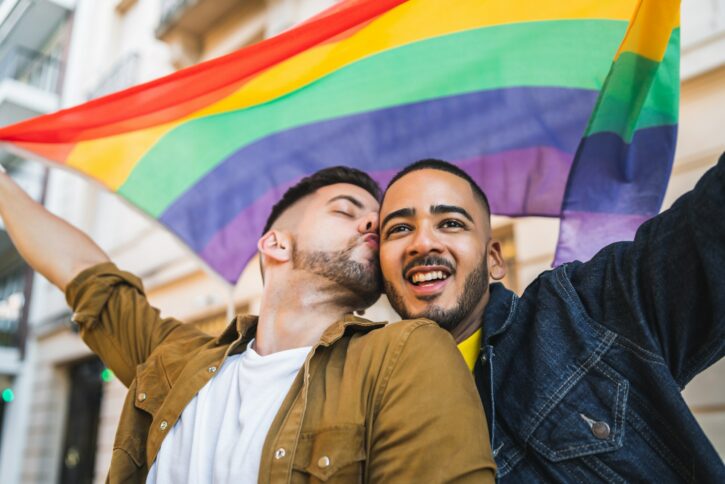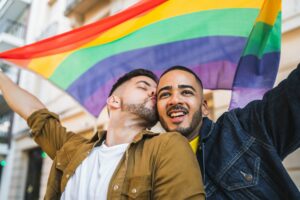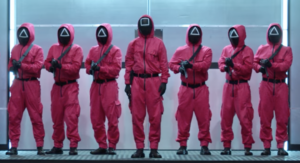Happy Pride Month! 2020 marks the 50th anniversary of LGBTQ+ Pride traditions. To celebrate, we used PickFu to ask 50 heterosexuals, “Are there questions you’ve always wanted to ask someone who’s LGBTQ+ but were too afraid to ask?”
Many survey respondents said no, and one woman pointed out that it “isn’t up to LGBTQ+ people to educate straight people on this stuff. We have to do the work ourselves.”
While that’s certainly true, we want to foster an open dialogue. So let’s dig in.
What straight people want to ask
The questions surfaced in the PickFu poll fell into these common themes:
- Coming out: Many respondents were curious about how and when people openly admitted their preferences. They wanted to know how it felt to come out and what gave people the courage to do it.
- Nature vs. nurture: Respondents asked whether LGBTQ+ believe they were born this way or whether other factors come into play. At what age did they know? Have they tried straight relationships?
- Societal responses: Several respondents wanted to know about how the broader community treats them, from everyday interactions to job discrimination to political pressures.
- What’s expected of allies: Some respondents worried about inadvertently offending LGBTQ+ people and wondered how to navigate this. They also wanted to know how to be a better ally.
- Mechanics: A few respondents wanted to know about how the act of sex plays out in LGBTQ+ relationships.
After the poll, we asked people in the queer community to share their answers. Here’s what they said.
How queer people answered
Elena Joy Thurston
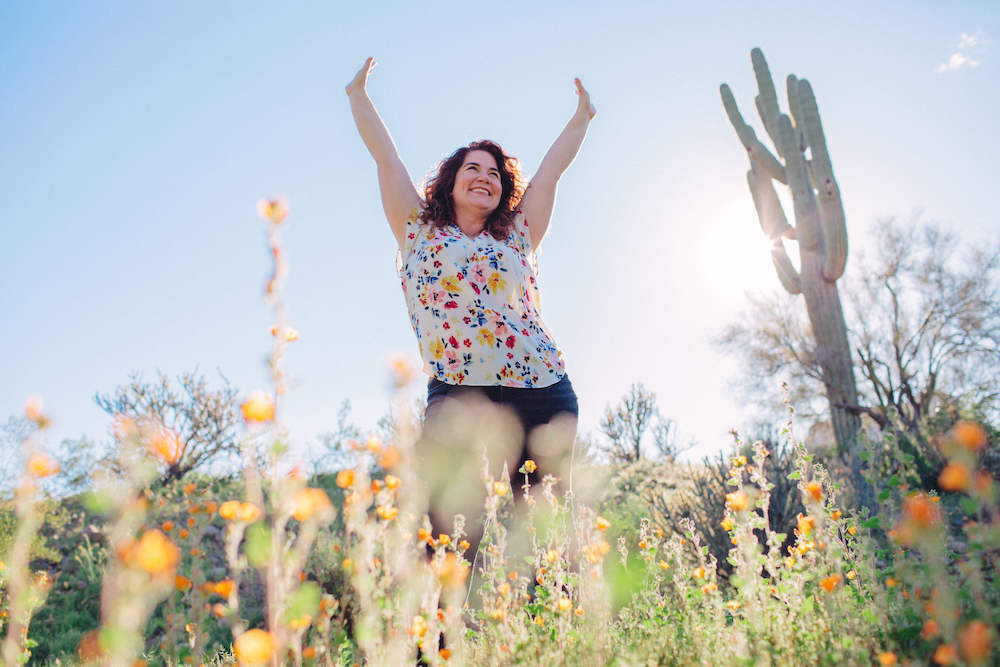
Elena Joy Thurston (she/her) is the founder of the Pride and Joy Foundation dedicated to building self-awareness and safety in LGBTQ families and their allies.
When did you first know you were queer?
I didn’t know I was queer until I fell completely and totally in love with my best friend. I had been married for 18 years and was Mormon and had four kids. I thought I was the kind of woman who just didn’t enjoy holding hands or cuddling on the couch or intimacy. I thought it was just my personality. Then I met her, and I couldn’t stop touching her. I’d make up excuses to touch her hair or sit close on the couch. When I started dreaming about her, that’s when I started to question my sexuality.
What was your first lesbian experience like?
Heeheehee. My first lesbian experience was mind-blowing. I still think about that first kiss and making out. I was seriously out of my head. I remember afterward thinking, “so romance novels are actually based in truth?!” My vision narrowed, I was sweaty, the 432 tabs in my brain shut down to just this one amazing moment. Good, so so good.
What do you struggle with every day that a straight person wouldn’t know about?
My struggles involve my kids. I raised them to be Mormon, and now I’m gay. That’s not an easy path for them. My oldest has dreamed of serving a mission his whole life, and now he might be disqualified because of me. They love me and they’re supporting me the best they can.
We live in a very conservative area. Flying a pride flag is basically asking your house to be egged nightly. When we walk to the mailbox holding hands, we get catcalls. My kids don’t get invited to playdates and very few friends are allowed by their parents to come to our home. Even their cousins aren’t allowed to come to our home without their parents. It’s been really hard to see how their lives have been affected by my sexuality.
One of my kids is a total rebel though, and he loves to out me to his friends after they say something like, “that’s so gay!” So that’s fun.
Have you lost friends because of your orientation?
I had been a professional photographer and had operated from a months-long waiting list. The week I came out, 80% of my clients emailed to cancel their appointments. 90% of my social circle was Mormon, and I lost almost all of them immediately.
The rest fell away within the next year. We’d meet for brunch, and we tried to remain friends. But they’d say things like, “I’m so glad we met when you were straight because now my kids can come over for playdates still.” Like, what? They’re such good people, but they have no idea what they’re saying sometimes. When it came from a good friend, it really hurt. So it was easier to just let the friendship fade away.
Do you think there is a chance that your sexuality is more tied to nurture than nature?
I’ve really wrestled with that question. As far as I can figure, it’s all nature.
I had enrolled myself in conversion therapy, which I didn’t know has a 57% suicide rate. I had a mental breakdown.
During conversion therapy, I was told that something had happened in my past to make me think I was attracted to women and if we could find it and heal it, I would be straight again.
I had experienced an assault when I was 15, and the therapist was sure that was the cause. We worked on that painful experience for months.
I realized one of my very close friends had experienced an assault way worse than mine as a young child. And here she was an adult, with a very healthy, intimate life with her husband. It finally sunk in that my assault and my sexuality were truly not linked.
And I started the path to healing. Every time I told someone “I’m gay,” I felt more alive, more connected to the earth, more real. So I ended up saying it A LOT. I really didn’t care who heard me; it felt so good to say, and it felt so good to be alive.
Brandon Atlas
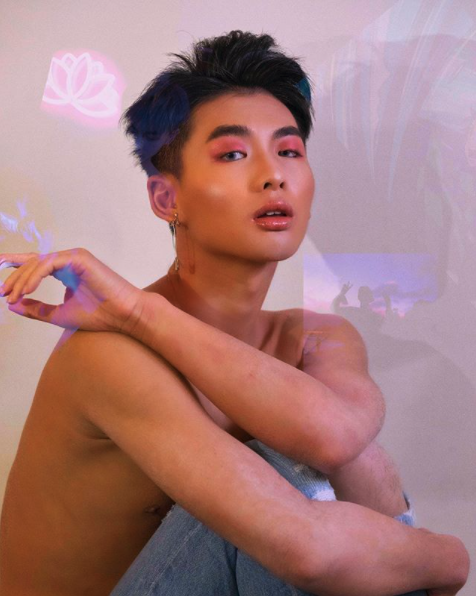
Brandon Atlas (he/him/they) is a 19-year-old model.
When did you first know you were queer?
I realized that I was different in middle school. People teased me for being flamboyant and called me gay before I even realized what my sexuality was. I was 13!
Ultimately, it was really difficult because the word gay always had a negative connotation. After figuring out my sexuality, I learned to embrace it and not let homophobic people get to me.
How did you come out?
I remember the summer of my freshman year, my aunt pulled me aside one night after seeing how closed off I was. I think she saw how much I was hurting myself by concealing my sexuality for so long.
She sat me and my parents down and was essentially a mediator. With the push that my aunt gave me, I forcibly came out! (haha)
What do you struggle with every day that a straight person wouldn’t know about?
I think a lot of straight people don’t realize how often queer people have to repress themselves. Sometimes it’s for safety, and sometimes it’s because of wanting to fit into society. Until we live in a place where it is 100% accepting, most queer people have a hard time expressing their authentic selves.
Do you think there is a chance that your identity is more tied to nurture than nature?
No, I don’t think how you were raised or what genes you have determine your sexuality. The only person that knows what you are attracted to is yourself.
While I am still navigating my gender identity, I do know that gender or being trans is not a choice. Gender is an expression and is not defined by what you are born biologically. People deserve to be called by their respectful pronouns.
What adversity have you faced at work?
As a model, I have faced not only discrimination for my ethnicity but also because of my sexuality. Getting castings is a lot harder if you don’t fit a certain mold.
How can straight people be a good ally to you?
Straight people can be a good ally by listening and learning. The best ally is always accepting and embracing. If a queer person tells you something is offensive, don’t get defensive! They are simply just trying to educate. The LGBT+ community is constantly getting discriminated against — you wouldn’t want to be another problem!
Paul Garcia
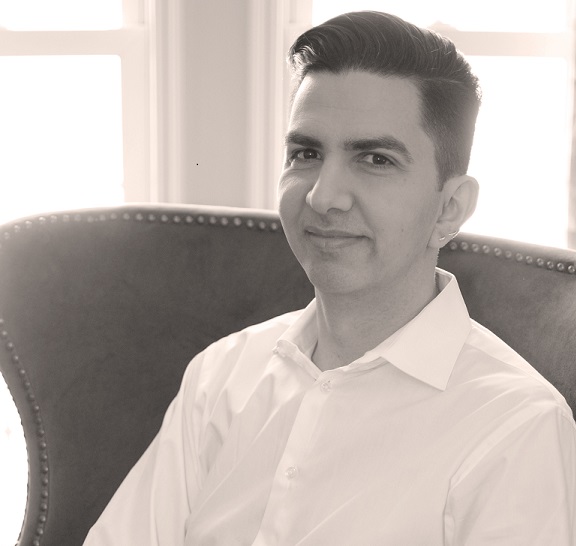
Paul Garcia (he/him) is the head of marketing for a software company.
When did you first know you were bisexual?
Third grade. In 1977, you didn’t really know you were anything other than different. There was no safe label. Any labels were always mean-spirited and derogatory. I simply felt different. I had interest and feelings for people that didn’t fit the models I had to go by.
I have been in a continuous same-sex relationship for the past 17.5 years. It is my fifth long-term relationship, including being married to a woman for three years. Most people assume I’m gay and that I was experimenting when I was younger until I could figure things out or felt safer. I don’t care what they assume and don’t feel compelled to ask for a correction.
How did you come out?
I came out broadly in college. My hometown found out because I was part of the state organizing group for the first march on Washington in the late 1980s, and I was interviewed on two morning television news stations.
Do you think there is a chance that your sexuality is more tied to nurture than nature?
No way. Why people get confused here is that they don’t understand the difference between the expression of someone’s sexuality and the orientation itself.
There is so much color and variety to sexual expression that there’s no doubt that nurture very much determines how sexuality is expressed. But the underlying orientation is locked in genetics. You can choose to act or not to act in expressing your nature. You can go through the world angry or peacefully. You can go through the world with faith and confidence or fear and doubt. Those are things affected by nurture.
But in nature, we simply are. Suppression, neutrality, and overexpression are nurture-driven elements. Orientation is a rock-solid, natural foundation no matter whether the individual chooses to express their core feelings exuberantly, quietly, or shamefully. Nurture tells us what to do to blend in or stand out. Nature tells us to be human and to connect.
Is there a respectful way that you want people to address you or ask how to address you?
No. And I differ in this from some of my friends who want people to know or ask about things like personal pronouns.
Address me by my name. That’s the safest thing for anyone in any situation.
Avoiding personal pronouns actually used to be a clue in knowing someone might be gay; saying “my friend” or “they did” were clues that the pronouns he and she were being avoided to obscure facts.
If you don’t know me, I expect you to start by learning my name. Continue to use my name. There’s never a reason to speak to me directly using a pronoun.
Theresa Quitto-Dickerson
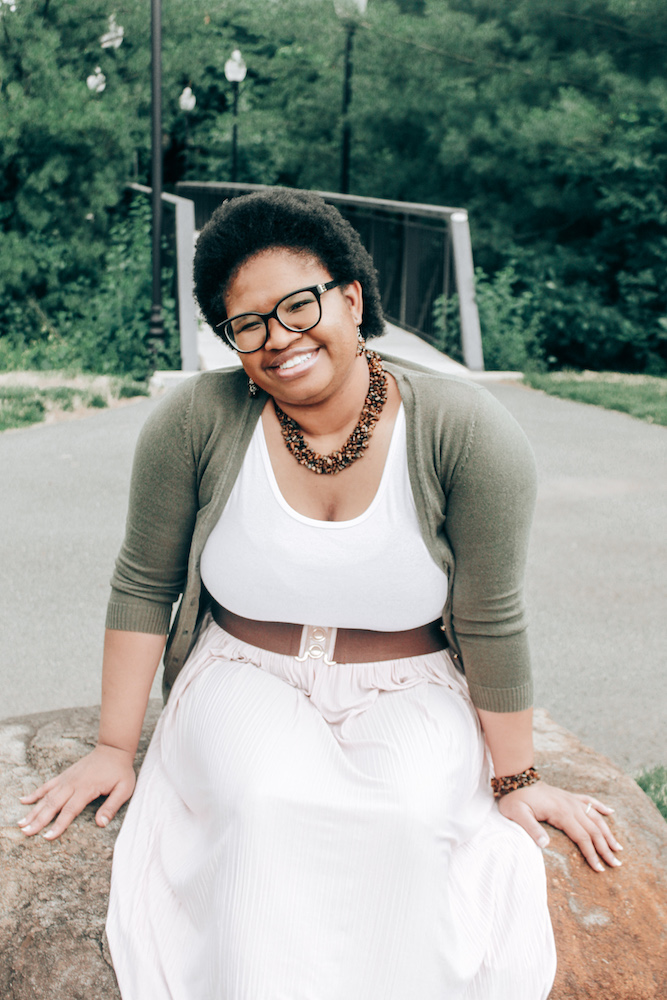
Theresa Quitto-Dickerson (she/her) is the founder and CEO of The Natural Mixx Company.
When did you know you were a lesbian?
Officially, when I was 21. Unofficially, when I was in high school. But I didn’t really do anything about it and actually got pregnant as a teen.
How did you come out?
It took me some serious time to figure out the best way to do this. Like most people, it wasn’t as common to have come up in conversations. So I just finally decided to give my mom something to ruminate over before I came out.
Out of the blue, I asked her, “How would you feel if I was gay?” She gave me a look and replied, “What are you talking about?” I then left it alone.
A few months later, I introduced my girlfriend (now wife of 16 years).
Even though I come from a very, very religious family, my mom’s first response was to look over her glasses and very matter-of-factly say, “Well, you couldn’t have figured this out before you had kids at 15?”
… And that was my coming out to my mom.
What was your first lesbian experience like?
Amazing, and also a relief. I thought I was a little defective, to be honest. I don’t have issues with men; in some circles, I could be considered bi. But I never enjoyed the intimate experience with men that I do with women (Well, now just with my wife — making that clear).
Do you think there is a chance that your sexuality is more tied to nurture than nature?
No, not at all. My nurturing came from a Pentecostal household that was quite frankly, very sexually repressed. I like what I like, that is nature.
How can straight people be a good ally to you?
I would say, don’t make being an ally about you. If you’re here to support, don’t make it about, “Oh look, I am supportive!” It takes away from the mission.
Kenny Screven
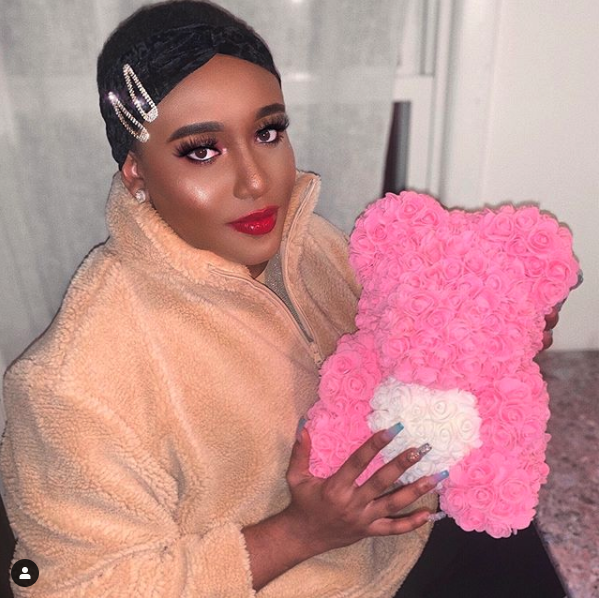
Kenny Screven (he/him) is a social media influencer and LGBT+ advocate.
When did you first know you were gay?
Since I was really little. I always thought boys were cute. After my first experience, I knew I was gay right away. It was with a lacrosse jock in high school. It was nerve-wracking yet exciting.
Have you ever tried to be in a straight relationship?
Yes, but they were long distance. Basically, we only talked on the phone and texted. It was more like a best friend if anything. I’ve never had sex with a girl before.
What do you struggle with every day that a straight person wouldn’t know about?
Wondering how I’m going to have kids and how long that process will take. I also wonder if my parents will come to my wedding.
Is there a respectful way that you want people to address you or ask how to address you?
No, not really. Address me like you would address any of your other friends. I don’t need special treatment. It becomes annoying when you’re treated differently because you’re gay. Maybe just ask my pronouns if you don’t know who I am. Sometimes when I wear makeup, people assume I’m transitioning, which is totally false.
How can straight people be a good ally to you?
Straight people can be a good ally if they support us being who we are and not treating us any differently just because of our sexual preference. For example, in college, I had a bunch of straight boys who supported me and always told me that they had my back no matter what. That made me feel extremely comfortable especially when going out to the clubs, etc. Support means everything.
Paul Trudel-Payne

Paul Andrés Trudel-Payne (he/him) is a husband, a father to an adopted biracial son, and an entrepreneur.
When did you first know you were gay?
Hmmm, for me I have felt different since before I can even remember. By 3 or 4 years old, I knew I was different than other boys because I didn’t want to play with the same things. I wasn’t as wild. I wanted to play with Barbie and change her outfits and style her hair and plan her future.
I ended up having to play sports instead and learning to hate myself because no around me seemed to want me to be so different. I didn’t realize the “different” that I was feeling meant gay, until probably in kindergarten or first grade, when some little boy said I was acting like a girl and then someone else said fag.
How did you come out?
I moved to the SF area for college the day after high school graduation thinking I would come out, but I didn’t. I was there for under a year, and that entire time I was dating girls on campus during the day, and then almost every night going into the city and meeting guys.
Growing up thinking part of you is so bad and disgusting made me overcompensate by trying to be excellent with everything else. I wanted to be liked and loved, but I had spent 18 years hating a big part of who I was.
When you’re young and discovering your sexuality with no rule book, it can be scary, and for me, it became dangerous. I was saying yes to any guy who showed interest and was nice to me. That lead to saying yes to drugs, which lead to putting myself in bad situations with people I barely even knew.
After about a year of living this double life and not feeling any more loved or wanted than when I started, I booked a flight and left school. I found myself back at home with my parents. Whether it was shame or anger for what happened to me while I was away, or trying to blame someone else like my parents, I decided to come out.
I told my mom who did not take it well. And then I told my dad, in a more spiteful way, thinking this would hurt him. But instead, he just cried and hugged me and told me how much he loved me and how proud he was that I came to him to share that with him. It was a moment I will never forget in my life.
What adversity have you faced at work?
When I started going after more business-focused, corporate-type jobs, I quickly learned how open or not I could be in the interview process and even faster how much to share at the workplace.
I have had colleagues and managers love me out of the gate and then after learning about my sexual orientation, invites to lunch or being highlighted during meetings all ceased to exist.
Now, in creative and innovative environments, my being gay is no more important than my being a guy or biracial. So I went that direction since.
Are there questions that we missed? If so, let us know in the comments! If you want to run your own PickFu poll of heterosexual or LGBT+ people, start here.
